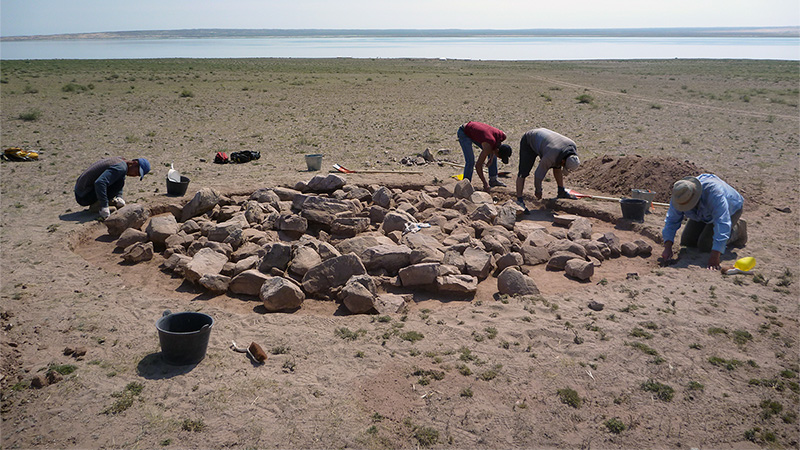Bachelor of Arts in Anthropology
Anthropology is a unique discipline that operates at the crossroads of the physical sciences, social sciences and humanities to examine the diversity of human experience across cultures and over time. Because of this breadth of focus, anthropology is highly relevant to understanding and living in a rapidly changing world.
Areas of emphasis
Archaeology
Archaeologists delve into the complexities of human history by examining physical remnants of past civilizations. From portable artifacts like pottery and tools to environmental samples such as plant remains and soil layers, these professionals piece together a comprehensive understanding of human activities, societal structures and cultural evolution.
Biological
Biological anthropologists, also known as physical anthropologists, study human evolution and variation. Specific emphasis is on mechanisms of biological evolution, genetic inheritance, human, adaptability, worldwide genetic and physical variation, primate anatomy and behavior and paleoanthropology.
Cultural
Cultural anthropologists study the diversity of human cultures and societies and the process by which people construct local, regional and global forms of social relationships. Several of our faculty study the process by which people construct particular social identities, worldviews and form of community in a changing, globalizing world.
Linguistics
Linguistic anthropology is the study of language use in social life. Linguistic anthropologists study the diversity of the world's languages and the diversity of language use and other forms of communication in societies around the world. Also included in this is the study of cultural understanding of languages and language varieties.
Minors in Anthropology
The Department of Anthropology at the University of Nevada, Reno also offers a minor in either archaeology, cultural, or physical anthropology. The department also participates in the interdisciplinary minor program by offering minors in the following areas:
Careers opportunities in Anthropology
Armed with a degree in anthropology, graduates gain access to a broad spectrum of career paths. These range from academia and research to roles in the public and private sectors. Potential professions include educators, journalists, museum curators, as well as specialists in healthcare, legal services, foreign affairs, economics, and law enforcement. The field also lends itself to careers in social development and cultural heritage preservation.
A bachelor's degree offers foundational knowledge, while advanced master's or doctoral degrees equip you with specialized expertise valuable in various industries. Anthropologists often find rewarding roles in multinational corporations, focusing on cross-cultural business practices. Some serve as consultants in developing countries, aiding governmental agencies in navigating social and economic shifts. Others specialize in archaeology, conducting surveys and excavations in areas impacted by environmental changes or construction. Additionally, many anthropologists contribute to academia as university and community college faculty, where they combine teaching and research to advance the field.
